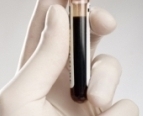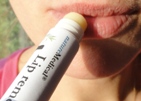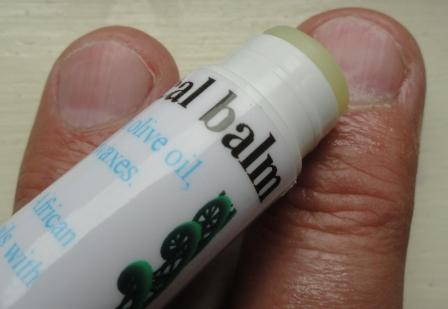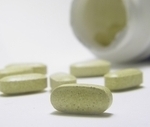
|
Travel and cancer |
|
| Contents and links: Fit to travel | Deciding to travel | Issues with flying | Importance of planning | Access to health care | Travel insurance | The EHIC card | Avoid complications | Benefits abroad | Vaccinations | Other financial issues | Medicines onboard | Lifestyle books to read on holiday | |

 Foreign
travel is no longer the exclusive preserve of the adventurous and wealthy. The growth
of budget airlines and cheap package holidays has opened up the possibility of
global travel to many people including those traveling with cancer. Furthermore, demographic changes have resulted in
more people having to travel to foreign countries in order to visit family and
friends. As more people seek to fly abroad, it is inevitable that greater
numbers with disability or illness, including cancer, will also be considering
flying to their destination.
Foreign
travel is no longer the exclusive preserve of the adventurous and wealthy. The growth
of budget airlines and cheap package holidays has opened up the possibility of
global travel to many people including those traveling with cancer. Furthermore, demographic changes have resulted in
more people having to travel to foreign countries in order to visit family and
friends. As more people seek to fly abroad, it is inevitable that greater
numbers with disability or illness, including cancer, will also be considering
flying to their destination.Fit to travel
The patient will be committing valuable time, effort and finances into their holiday. If there is
a doubt whether the patients is fit to travel, a
multi-disciplinary assessment as to whether the patient is actually well enough
to undertake the journey is essential. Assessment must take into consideration
the patient’s physical capabilities (including the stability and severity of
symptoms), the distances involved, the mode of travel and the country of
destination. Assessment may be required for those cancer
patients with pre-existing co-morbidities e.g. heart failure, respiratory
disease. If the decision is that it is relatively safe to travel, often a letter
from the doctor to the Airline medical office is required. The factors to
consider whether fit to travel include:-
Decision to travel
During active cancer therapies or ongoing illness it is
important assess the risks an benefits of travel. It may often be
necessary to advise a delay to the planned journey if the patient has recently
completed, is currently undergoing, or due to start certain treatments e.g.
chemotherapy. Do not automatically cancel a pre-arranged holiday, however as
often simple re-arrangements can be made to allow a holiday to take place.
Radiotherapy and be planned before the holiday and started on return - this
doesn't delay the treatment because there may well be a week or so gap between
the planning and start. There may be other hidden factors to consider when
planning a trip such as addition
expenditure in order to facilitate the safe travel of a patient
with ongoing healthcare needs. The resultant financial cost may prove
prohibitive and such issues may require further exploration. Relative and carer
may have to intervene if the patient has an unrealistic insight in their capability to travel. False expectations may
be born out of a lack of understanding regarding the true nature of their
illness. Alternatively, the patient may be denying the seriousness of their
condition. Such situations require sensitive handling and excellent
communication.
For a patient with advanced cancer, a holiday may represent more than “taking a break” and there can be any number of reasons for the choice of destination. If the patient is deemed too ill to make their intended journey, the healthcare professional should be prepared to discuss alternatives rather than simply giving a negative response. For example:
Some patients may be tempted to partake in some of the numerous complimentary / alternative therapies practiced throughout the world. Extreme caution should be taken. It would be difficult for the patient to establish whether a practitioner is adequately trained, has appropriate insurance or whether they are affiliated to a governing body. Furthermore, some herbal remedies may contain substances that interact with the patients prescribed medication. The patient should not take such remedies without discussion with their cancer specialist.
Flying
Commercial air-travel is one of the safest modes of travel
and problems specifically related to a patient’s cancer are rare. However, the
environment within the cabin can be challenging; humidity is relatively low and
conditions are often noisy and cramped with long periods of sitting. Modern jet
aircraft have a cruising altitude approaching 39,000 feet, which is more
fuel-efficient and avoids much of the turbulence experienced at lower altitudes. Although cabin pressure is maintained at a more modest 5,000 – 8,000 feet,
passengers will be subjected to prolonged periods at reduced atmospheric
pressure. The fall in atmospheric pressure has two main
effects:
A reduction in the pressure of atmospheric oxygen, causing a fall in blood oxygen saturation
The expansion of gases in body cavities.
At 8,000 feet the partial pressure of oxygen falls to the equivalent of breathing 15.1% oxygen at sea level. The volume of gas expansion can be in excess of 30%. Most people have the capacity to compensate for such changes with little difficulty. However, for some individuals with an underlying healthcare need, these changes can be problematic. The suitability of flying as a mode transport must be carefully considered if any of the following apply;
Oxygen dependent
Breathless at rest or on minimal exertion
Marked anaemia (haemaglobin < 8 g/dL)
Respiratory complaints with a history, or likelihood of, pneumothorax or large bullae
Ischaemic heart disease or cardiac failure
At risk from, or history of, thromboembolism (NB. Advanced cancer is a highly thrombotic state)
Within ten days of receiving bowel surgery or colonoscopy (may introduce gas into the body that may expand so causing pain and stretching the wound)
Within 2 - 4 weeks of chest surgery (including drainage of pneumothorax)
Up to six weeks following cranial surgery
Disease of the ear or sinuses (symptoms may be exacerbated by pressure changes)
Confusion or psychosis
At risk of developing cerebral oedema e.g. primary or secondary intracerebral tumour
The British Thoracic Society recommends that patients planning to fly, who have a resting sea level blood oxygen level of between 92 – 95% with additional risk factors (such as lung cancer, chronic lung or cardiac disease) should undergo hypoxic challenge testing as part of the pre-flight assessment. Patients with a current closed pneumothorax should not travel on commercial aircraft whilst those with a previous pnuemothorax will need a chest x-ray confirming resolution before flight.
Oxygen requirements: For patients requiring long-term oxygen therapy, prior arrangement with the destination country is essential for adequate supplies to be organised. The patient’s UK oxygen provider should be able to arrange for supplementary oxygen to be available at the destination, although there may be a charge. It is important to confirm that all such arrangements are in place prior to travelling. The patient should obtain details as to whom to contact, both at the country of destination and in the UK, in the event of problems arising regarding the supplementary oxygen supply. It may be necessary for the patient to supply their own oxygen tubing, adaptors, masks / nasal cannula as required.Although commercial aircraft have an emergency oxygen supply, it is intended solely for that purpose i.e. an in-flight emergency. If there is likelihood that a patient will require supplementary oxygen during the flight it is imperative that they discuss their needs fully with the airline at the time of booking.
There is little consistency between airlines regarding the provision of in-flight oxygen. Most airlines are able to supply supplementary oxygen but charges (where made) vary widely; some airlines expect payment for an additional seat, to which the oxygen cylinders are secured. Supplementary in-flight oxygen is usually delivered at flow rates ranging from 2 – 8 litres per minute, but the maximum flow rate varies between airlines and should be clarified prior to booking. Some airlines allow a patient to travel with their own oxygen supply, but in limited quantities. The use of supplementary oxygen during take off and landing may be subject to further restriction. The policies and procedures of individual airlines can be found on their respective websites. The healthcare provision of many major airlines are summarised on the British Lung Foundation website (www.britishlungfoundation.org). The AMO will request written information from the patient’s GP or specialist detailing the need for in-flight oxygen, whether required continuously or intermittently and the flow rate (at altitude).
Other considerations when flying The airline has a duty of care to all their passengers and will seek to minimise the risk of possible disruption, such as having to make an unscheduled landing to obtain medical treatment. There is neither the skill nor the facilities on commercial aircraft to care for seriously ill people for extended periods of time, and airline staff may refuse to carry passengers whom they feel are too unwell. The AMO will assess the suitability of individuals to travel based on information received from the patient. Further information may be requested from the patient’s GP or cancer specialist. The AMO may only authorise travel when special arrangements are in place with regards to seating, provision of an escort and in-flight oxygen.
Slightly more legroom than standard may be obtained from an aisle seat, which would also give easier opportunity walk around the plane. Some airlines have designated seating for people with disabilities. Seating options can be discussed when booking the flight. If it is likely that the patient will require long periods reclining in their chair or would benefit from additional legroom, then first class travel may be deemed necessary (particularly over longer journeys). The patient will have to meet the additional cost of upgrading. Provision for the patient to travel on a stretcher can often be made but since one stretcher can accommodate the space of up to nine economy class seats, cost may be prohibitive. Flight attendants are trained in first aid and strive to be as helpful as possible, but they are not authorised to give assistance with personal or medical care, or operate medical equipment. In situations where an escort is deemed necessary, the escort must be seated next to the patient. When the escort is a healthcare professional, the patient is expected to meet the costs incurred. The AMO may stipulate that if the patient requires such support, they travel in the company of an escort. The nature of the escort depends on the type of care required e.g
The importance of planning
Going
on holiday is generally considered a positive experience, yet it is not without
possible complications. Your medical team and relatives should assess your risks
and help you decide. Such assessment, together with knowledge of
the chosen destination and itinerary, will aid identification of potential
problem areas and facilitate anticipatory planning. All stages of the journey
must be considered. The patient should travel with a written summary of their condition that includes:
diagnosis
recent and ongoing treatment
photocopy of recent chemotherapy or radiotherapy summary
medication
contact details (including family members, General Practitioner, Oncology team and / or Specialist Palliative Care Team)
written information should be in English and translated into the language of the country of destination. Copies of both should be kept in the patient’s possession at all times.
It is usual for the patient to make appropriate arrangements regarding travelling to and from the airport. If the patient is unable to travel by car or taxi, the services of a private ambulance may be necessary.
The airport terminal can be a very stressful environment for those with a healthcare need. To minimise potential problems, the patient should give plenty of notice to the airline as to what level of assistance they require. At the time of booking, the patient should clarify:
if it is possible to check-in or board the plane early,
the level of assistance with the carrying of luggage or special equipment
whether a wheelchair could be made available (and if there is a charge for this service)
the level of assistance for boarding the aircraft
whether medical equipment may not be allowed onto the aircraft without the prior authorisation from the Airline Medical Officer (AMO). Such authorisation should be obtained in writing, which can then be produced on demand. Medical equipment should travel in the patient’s hand luggage, as should any additional supplies required, such as syringes, batteries and spare parts.
The standard of healthcare and its provision varies greatly throughout the world, not only between countries but also within countries. For example, patients staying within an urbanised area of a developed country may well be able to access a wide range of healthcare services (possibly at a cost). However, if the destination is to a remote location, even within a developed country, then healthcare provision may be very basic. An important part of planning a journey abroad is to ascertain the level of healthcare services available. The relevant High Commission, Embassy or Consulate will be able to provide details.
The level of emergency medical cover available to UK citizens abroad varies but is essentially of three types:
European Economic Area (EEA) Countries allow UK residents to access state provided medical treatment on production of a valid European Health Insurance Card (EHIC). Such treatment may not include all that would be expected free of charge from the NHS in the UK and as such a financial contribution to care received may be required (it may be necessary to pay part or all the cost, then claim a full or partial refund). The EHIC does not provide cover if the purpose of the trip is to obtain medical treatment (form E112 will be required). The EHIC does not negate the need for comprehensive travel insurance.
Reciprocal Agreement Countries are those countries outside the EEA that have reciprocal agreements with the UK for the provision of emergency medical cover.
Countries with no Healthcare Agreements with the UK include most of countries in the world, including Canada, India, United States of America, all countries in the Middle East and Africa
The Department of Health booklet “Health Advice for Travellers” is widely available at Post Offices and travel agents. It provides details on how to access health care when abroad and how to obtain a EHIC (and form E112); an updated version can be found on their website (www.dh.gov.uk/travellers).
Because our healthcare system is largely “free at the point of delivery”, it is easy for UK citizens to underestimate the financial costs accrued when receiving medical treatment whilst abroad. Even within countries that have a reciprocal agreement with the UK, costs can run into thousands of pounds for treatment received. Costs can escalate dramatically if the services of an air ambulance are required (in excess of £30,000 from USA, up to £12,000 from the Balearics). If death occurs whilst the patient is abroad, the family are expected to meet the costs of repatriation. Therefore, comprehensive travel insurance is strongly recommended for those patients who wish to travel abroad.
Travel
insurance
Even though a patient with advanced cancer may be deemed fit enough to travel by
their doctor, there may still be difficulty in obtaining travel insurance as the
patient is considered more likely to make a claim Added difficulty may occur if the
destination country has expensive healthcare, or the journey involves a long
flight.
Insurance companies will consider applications for cover on an individual basis. This may involve the completion of a health questionnaire, the request of information from the patient’s doctor and possibly an independent medical examination. The patient must provide full details regarding their condition and treatment when applying for travel insurance as any omission may invalidate the policy if a subsequent claim is made. There is no reason to assume you are uninsurable. Some insurance companies will look more favourably on people with cancer than others. For more information we suggest you contact the BIIBA who will give you a list of brokers in your area for holidays, life insurance & mortgages or try one of the insurers listed below.
| British Insurance & Investment
Broker Association (BIIBA) BIIIBA House 14 Belvis Marks, London EC3A 7NT 0207 623 9043 |
Age Concern Insurance Group Garrod House, Chaldon Rd Caterham, Surrey, CR3 5YZ 0800 387092 or 01883 834887 |
CH Facilities PO Box 56, Poulton-le-Fylde, FY6 77BH 01253 884419 |
| RIAS (Retirement Insurance Advisory Service) 17 Commercial Rd, Poole, Dorest BH14 OHN |
Benefits & support whilst away
The patient may be in receipt
of benefits to which they remain entitled during their time abroad. The
local Benefits Office will be able to give advice and additional information
is available on the website for the Department for work and pensions (www.dwp.gov.uk). If it were anticipated that
medical care would be required whilst abroad, it would be prudent to contact the
appropriate health care professional in the country of destination
before travelling and forward an up-to-date summary of the patient’s condition.
Information about cancer services within a particular country can be obtained
through the relevant High Commission, Embassy or Consulate. Hospice Information
supplies the contact details of hospices and Specialist Palliative Care Units
throughout the world.
Avoiding the medical complications of travelling
General healthcare advice that is appropriate to all travellers often has particular relevance for those with cancer, due to their increased susceptibility to the risks encountered. Often, relatively simple measures and precautions can prevent much distress.
Avoiding blood clots – The association between venous clots (thromboembolism) and long travel journies has been the subject of much speculation. Patients with cancer are much more vulnerable to clots and sitting in cramped conditions (car, bus, plane) for a prolonged period of time is likely to represent an increased risk. General advice includes
drink plenty of non-alcoholic drinks
avoid alcohol strong coffee
avoid getting dehydrated.
taking a short walk every 1-2 hours
take a brisk walk for a long as feasible before travelling e.g. in the airport before boarding rather than sitting around the departure lounge.
perform regular leg exercises
wear anti-embolic stockings (ensure they are fitted correctly)
unless contra-indicated (e.g. stomach ulcers or already on warfarin or heparin), 75 mg of aspirin should be taken the day before and the day of travel.
Some patients considered at a greater risk e.g. recent surgery, fracture, hormonal therapy or chemotherapy it may be worth considered for prophylactic low molecular weight heparin with the GP, although this may raise practical difficulties.
Lymphoedema – Sufferers of lymphoedema may find their condition is exacerbated by travel (especially flying) as a result of prolonged inactivity. A pre-flight assessment by a lymphoedema specialist would be beneficial. Restrictive clothing should be avoided and compression garments worn as instructed. If lymphoedema affects the lower limbs the patient should be advised to wear shoes that can accommodate any swelling of the feet. Shoes should not be removed during the flight (there may be difficulty getting them back on). Some form of footwear should be worn at all times, including if bathing in the sea. If lymphoedema affects the upper limbs the patient should avoid wearing rings or wristwatches on the affected limb. The patient should also avoid carrying heavy luggage . Vaccinations should not be injected into the affected limb. Special care should be taken to avoid sunburn and insect bites. It may be considered necessary for the patient to travel with a supply of anti-biotics in the event of infection. The Lymphoedema Support Network produces an informative leaflet on the “Do’s and Don’ts” when planning holidays and travel (www.lymphoedema.org/lsn).
If you have previously suffered an episode of infection in the affected arm consider taking some antibiotics - just in case.
Avoiding diarrhoea and vomiting – Diarrhoea and vomiting can be debilitating to individuals who are generally in good health, but can be devastating to the patient with advanced cancer. If you are visiting an area with a high prevalence of diarrhoea consider asking your GP for a Single tablet of an antibiotic (a manoeuvre which has been shown to reduce the risk of diarrhoea). In general, in any country, food and water can be contaminated in a variety of ways but risks can be reduced significantly by taking relatively simple precautions:
If unsure about the cleanliness of the piped water supply, boil all water before drinking or cleaning teeth. For additional safety, only use bottled water (ensure that the cap is sealed) – fizzy water is less likely to have been tampered with:-
Avoid ice in drinks where cleanliness is in doubt
Avoid unpasteurised milk
Avoid foods which have been left lying about or reheated
Eat food that is freshly and thoroughly cooked whilst still hot
Avoid food that has been exposed to flies.
Taking care in the sun – Even limited exposure to strong sunlight can cause sunburn and heat exhaustion. Patients should be advised to stay out of the sun during the hottest part of the day (1100 – 1500hrs) and to drink plenty of non-alcoholic drinks. Some patients may be more sensitive to the direct effects of the sun due to chemotherapy regimes, radiotherapy or lymphoedema. High-factor sun block (SPF 15 or higher) is recommended, as is the wearing of loose, cotton clothing. (also see careful sun exposure)
Insect bites – A number of countries have diseases that are transmitted through insect bites, but any bite can lead to subsequent infection. The risk of insect bites may be increased with certain types of holidays (e.g. camping), holidaying at certain times of the year (e.g. high summer), at certain times of day (e.g. at dusk) or at particular locations (e.g. lakesides, wooded areas). If the risk of insect bites is deemed to be high, the patient should be encouraged to use an approved insect repellent (preferably containing DEET (diethltouamide)) and keeping as much of their body covered with appropriate clothing. A “knock-down” insecticide spray may provide further protection. The use of a mosquito net should also be considered.
Immunisations and vaccinations
Immunisation against certain diseases may be essential or recommended when travelling to certain countries. Whether a patient is able to receive certain vaccines may influence their travel destination.
There are three main types of vaccine (17):
· Live attenuated vaccine
· Inactivated vaccine
· Detoxified toxin
Live attenuated vaccines are best avoided in patients who are immuno-compromised. Inactivated vaccines and detoxified toxins are safe to give but may be less effective in people with a weakened immunity.
Causes for a patient being immuno-compromised include:
· Type of cancer
- Lymphoma
- Leukaemia
· Cancer treatment received
- Chemotherapy within previous six months
- Whole body irradiation within previous six months
- Stem cell or bone marrow transplant within previous six months
- Splenectomy
· Concurrent drugs
- Steroids within previous three months
Patients who have received high dose chemotherapy, stem cell or bone marrow transplantation may have lost the immunity from previous vaccinations and will require re-vaccination six months after the completion of their cancer treatment.
Patients who have undergone a splenectomy will have lower resistance to certain types of infection and should be vaccinated against pneumococcus haemophilus influenza type b, and meningococcus (16). It may be considered necessary for a splenectomy patient to travel with a ready supply of anti-biotics. Malaria can pose particular problems for patients who have undergone a splenectomy and travel to malarial areas is best avoided.
There are no restrictions on the carriage of either “over-the-counter” medications or prescription drugs (not controlled) out of the UK. However, there is a range of considerations that the patient needs to address before travelling in order to minimise potential problems:
· Keep all medications in original packaging
· Travel with the original prescription and/or a covering letter from the prescribing doctor
· Medication to be secured in a shock proof container and carried in hand luggage
· Carry additional medication to what is considered necessary in case of unforeseen events
· Contact the High Commission, Embassy or Consulate of the country of destination (including stopover countries) to clarify if there are any restrictions regarding the import of a particular medication.
· Check with a pharmacist the availability of a particular medication in the country of destination. It is worth noting that brand names of drugs often differ abroad. The pharmacist will also be able say whether a different brand raises issues associated with bioavailability
· If the medication needs to be kept cool, utilise a cool bag when travelling and seek confirmation that there is access to a refrigerator at the destination
Controlled drugs (eg morphine). Additional considerations and arrangements must be made for patients travelling with controlled drugs. The Home Office stipulates the maximum doses of controlled drugs that an individual may export out of the UK. If the quantity of controlled drug does not exceed the maximum amount specified, a covering letter from the prescribing doctor (on headed notepaper) will be sufficient to permit the carriage of drug out of, or into, the UK. Up-to-date lists of controlled drugs can be obtained at www.drugs.gov.uk (drug laws and licensing link). Examples, of the maximum doses of controlled drugs allowed abroad stipulated by the home office include:-
In order to carry quantities of a controlled drug greater than the maximum stipulated by the Home Office, the patient and General practitioner or other prescribing doctor must make an application for a Personal Import/Export Licence. Application forms may be downloaded from the www.drugs.gov.uk (drug laws and licensing link). It usually takes 14 days to issue a Personal Licence, although it is possible to speed up the process if necessary. The information required would include:-
Patient’s name, address and date of birth
Country of destination
Date of departure
Date of return to the UK
Details of the drug – name, form (e.g. tablets), strength and total quantity to be taken out of the country
This license applies to opiates except Diamorphine, which is illegal in most countries and permission must be sought from the relevant Ministry of Health before it can be taken into that country or a licence issued. In circumstances where the patient is seeking repatriation to a foreign country, it may be necessary to convert to an alternative opioid. A Personal Licence has no standing outside the UK and will merely allow travellers to pass through UK customs unhindered. It has no influence on permitting entry of controlled drugs into the country of destination. Individual countries may have strict guidelines regarding the import of controlled drugs. Patients are strongly advised to obtain the relevant authorisation by contacting the appropriate High Commission, Embassy or Consulate before embarking on their journey. If possible, such authorisation should be obtained in writing in order to show to the local customs service. If written authorisation is not forthcoming, a letter from the prescribing doctor on official notepaper to include details of the prescription with a contact address and telephone number may prove helpful.
Contents reproduced with kind permission of the author:-Dr Simon Noble, Senior Lecturer and Honorary Consultant in Palliative MedicineCardiff University / Royal Gwent Hospital B6N, Cardiff Rd, Newport, Gwent NP18 2UB and Colin Perdue: Clinical Nurse Specialist Ty Olwen Hospice Swansea.
|
Helpful resources and links |
 Good holiday
cancer
travel insurance can be hard to find. Try us. We’re medical travel
insurance specialists and can give you the cover you need, without
destroying your holiday budget. Good holiday
cancer
travel insurance can be hard to find. Try us. We’re medical travel
insurance specialists and can give you the cover you need, without
destroying your holiday budget. |
 Cancernet-UK:
What
is cancer; About
specific cancers;
Breast |
Prostate |
Bowel. About
cancer
treatments; Chemotherapy
|
Radiotherapy |
Hormones | Biological
agents | Complementary.
Lifestyle
advice;
Exercise | Diet |
Smoking | Sunbathing
| Alcohol. Cope
with symptoms; Traveling
| Insurance | Tests
for cancer | Clinical trials. ...site
map Cancernet-UK:
What
is cancer; About
specific cancers;
Breast |
Prostate |
Bowel. About
cancer
treatments; Chemotherapy
|
Radiotherapy |
Hormones | Biological
agents | Complementary.
Lifestyle
advice;
Exercise | Diet |
Smoking | Sunbathing
| Alcohol. Cope
with symptoms; Traveling
| Insurance | Tests
for cancer | Clinical trials. ...site
map |
 Micro-nutrient
testing Empower yourself to make dietary
choices specific to your personal make up. This Cancer Risk Nutritional
Profile, analyses your blood profile and recommends specific dietary and
supplement advice to ensure you have the best possible nutritional
status to fight cancer an aid recovery from treatments....read
more Micro-nutrient
testing Empower yourself to make dietary
choices specific to your personal make up. This Cancer Risk Nutritional
Profile, analyses your blood profile and recommends specific dietary and
supplement advice to ensure you have the best possible nutritional
status to fight cancer an aid recovery from treatments....read
more |
 Download
a free chapter describing how to avoid cancer forming chemicals
(Carcinogens) in our
diet and environments from the new edition of the best selling evidence
based book "Lifestyle
after Cancer - the facts" Download
a free chapter describing how to avoid cancer forming chemicals
(Carcinogens) in our
diet and environments from the new edition of the best selling evidence
based book "Lifestyle
after Cancer - the facts"
|
 Make
a will (or living will)
Cancernet has teamed up with a leading UK lawyer to drive down the cost
of making a solicitor checked will. This reliable, easy to
use, online resource ensures your assets (money, property, jewellery,
etc) go to the person you want and not those you least want. Cancernet-glossLegal wills start from £39....read
more Make
a will (or living will)
Cancernet has teamed up with a leading UK lawyer to drive down the cost
of making a solicitor checked will. This reliable, easy to
use, online resource ensures your assets (money, property, jewellery,
etc) go to the person you want and not those you least want. Cancernet-glossLegal wills start from £39....read
more |
 Protect
your lips during chemotherapy There is
evidence that natural oil based creams are better than petroleum based
creams. natureMedical lip balm has been specifically design to
soothe and moisturise the lips during and after chemotherapy or after
sun exposure. It only contains only natural waxes and essential oils
selected for their anti-inflammatory and DNA stabilizing properties...read
more/order Protect
your lips during chemotherapy There is
evidence that natural oil based creams are better than petroleum based
creams. natureMedical lip balm has been specifically design to
soothe and moisturise the lips during and after chemotherapy or after
sun exposure. It only contains only natural waxes and essential oils
selected for their anti-inflammatory and DNA stabilizing properties...read
more/order |
 Protect
your nails during chemotherapy. Nails can
become painful and disfigured during and after chemotherapy. We describe
the latest nail care guidelines and number of useful tips to keep
them healthy, including cooling and moisturizing ...read
more Protect
your nails during chemotherapy. Nails can
become painful and disfigured during and after chemotherapy. We describe
the latest nail care guidelines and number of useful tips to keep
them healthy, including cooling and moisturizing ...read
more |
 Look
after your family after cancer
- A diagnosis of cancer can cause a strain on
family harmony. With emotions running high its not a good time to be upset
further by destructive arguments. This practical little book has
identified the situations where arguments are most likely to happen and
provides simple tips to navigate around them...download
£1.99 Look
after your family after cancer
- A diagnosis of cancer can cause a strain on
family harmony. With emotions running high its not a good time to be upset
further by destructive arguments. This practical little book has
identified the situations where arguments are most likely to happen and
provides simple tips to navigate around them...download
£1.99 |
  Lifestyle
and cancer - the facts.
This 2011, edition with a foreword
from Paula Radcliffe has been extensively re-written with
evidence from the latest research from around the world which
demonstrates how diet, exercise and lifestyle changes can; help avoid
cancer (read
chapter 9 free), cope with treatments side
effects; slow the rate of progression of cancer and help prevent
relapse. This comprehensive essential
lifestyle guidebook can be ordered
online (£8.95), or downloaded via
kindle Lifestyle
and cancer - the facts.
This 2011, edition with a foreword
from Paula Radcliffe has been extensively re-written with
evidence from the latest research from around the world which
demonstrates how diet, exercise and lifestyle changes can; help avoid
cancer (read
chapter 9 free), cope with treatments side
effects; slow the rate of progression of cancer and help prevent
relapse. This comprehensive essential
lifestyle guidebook can be ordered
online (£8.95), or downloaded via
kindle |
 Prepared
for cancer treatments. Patients and
professionals, teamed up with Sue Lawley to produce this 21 minute
film which explains chemotherapy & radiotherapy while you watch
patients, describing their experiences, side effects and methods to
alleviate them. Awarded the NHS communication prize ... read
more / order individually or in bulk for your oncology department Prepared
for cancer treatments. Patients and
professionals, teamed up with Sue Lawley to produce this 21 minute
film which explains chemotherapy & radiotherapy while you watch
patients, describing their experiences, side effects and methods to
alleviate them. Awarded the NHS communication prize ... read
more / order individually or in bulk for your oncology department |
 Keep-healthy.com
Practical evidence based advice on healthy living including ways to
naturally reduce cholesterol, reduce blood pressure, keep healthy
eyesight, hearing, maintain a healthy
weight and level of fitness. Includes advice on supplements and other
useful products...link Keep-healthy.com
Practical evidence based advice on healthy living including ways to
naturally reduce cholesterol, reduce blood pressure, keep healthy
eyesight, hearing, maintain a healthy
weight and level of fitness. Includes advice on supplements and other
useful products...link |
 Support
groups and self help organisations
throughout the UK and internationally. Links to Asian
support organisations; Read patient
stories, poems and links to the Cancer
active website addressing a wide range of complementary
issues related to cancer and their a quarterly magazine (ICON).. submit
a link to your group Support
groups and self help organisations
throughout the UK and internationally. Links to Asian
support organisations; Read patient
stories, poems and links to the Cancer
active website addressing a wide range of complementary
issues related to cancer and their a quarterly magazine (ICON).. submit
a link to your group |